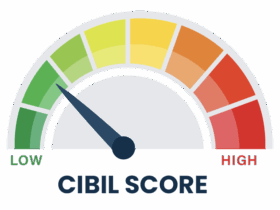In today’s fast-paced financial landscape, businesses must ensure accuracy, efficiency, and compliance in their financial processes. Manual data entry, human errors, and outdated systems can lead to costly mistakes and inefficiencies. To address these challenges, financial automation solutions have emerged as a game-changer, helping companies streamline operations, reduce errors, and improve accuracy.
The Role of Financial Automation Solutions in Modern Businesses
Traditional financial management relies heavily on manual workflows, increasing the risk of miscalculations, compliance issues, and delays. However, financial automation solutions powered by AI automated software are transforming the way organizations handle financial data. These advanced tools eliminate human errors, ensure real-time data processing, and optimize financial decision-making.
From invoice processing and expense management to reconciliation and compliance reporting, automation brings precision and speed to financial tasks. Businesses leveraging AI automated software experience reduced operational costs, improved data accuracy, and enhanced productivity.
Key Benefits of Financial Automation Solutions
1. Minimizing Human Errors
Manual financial processes often result in errors such as incorrect data entry, duplicate payments, or miscalculations. Financial automation solutions use machine learning algorithms and artificial intelligence to eliminate these mistakes, ensuring accurate and reliable data processing.
2. Enhancing Compliance and Risk Management
Regulatory compliance is crucial for businesses to avoid penalties and legal issues. Automated financial tools ensure that transactions align with industry standards and legal requirements. AI automated software provides real-time tracking and auditing, making it easier for companies to stay compliant with financial regulations.
3. Improving Efficiency and Productivity
Repetitive tasks like invoice approvals, tax calculations, and account reconciliation consume valuable time. With automation, finance teams can focus on strategic planning and decision-making instead of manual data processing. This increased efficiency leads to faster operations and better financial insights.
4. Real-Time Financial Insights
Accurate financial reporting is essential for making informed business decisions. Financial automation solutions provide real-time dashboards, predictive analytics, and detailed reports, allowing businesses to monitor cash flow, expenses, and revenue trends with precision.
5. Cost Savings and Scalability
By automating financial processes, businesses can reduce labor costs associated with manual data entry and error correction. Additionally, AI automated software scales with business growth, adapting to increasing transaction volumes without requiring significant additional resources.
Applications of Financial Automation in Business
Financial automation extends across various domains, improving accuracy and efficiency in multiple areas:
- Accounts Payable & Receivable – Automates invoice approvals, payment processing, and tracking, reducing late payments and errors.
- Expense Management – Streamlines expense reporting and approvals, ensuring compliance with company policies.
- Payroll Processing – Automates salary calculations, tax deductions, and direct deposits, eliminating payroll discrepancies.
- Financial Forecasting – Uses predictive analytics to assess market trends and optimize financial planning.
Future of AI-Driven Financial Automation
The future of financial automation solutions is evolving rapidly, with AI and machine learning playing a central role. Businesses will benefit from even more intelligent automation capabilities, including natural language processing for financial queries, predictive risk assessment, and enhanced fraud detection. AI automated software will continue to refine financial operations, making them more efficient and error-free.
Conclusion
Embracing financial automation solutions is no longer an option but a necessity for businesses seeking accuracy, efficiency, and compliance. By integrating AI automated software, companies can significantly reduce errors, enhance decision-making, and achieve long-term financial success. As technology advances, automation will continue to shape the future of finance, ensuring businesses operate with greater precision and control.








